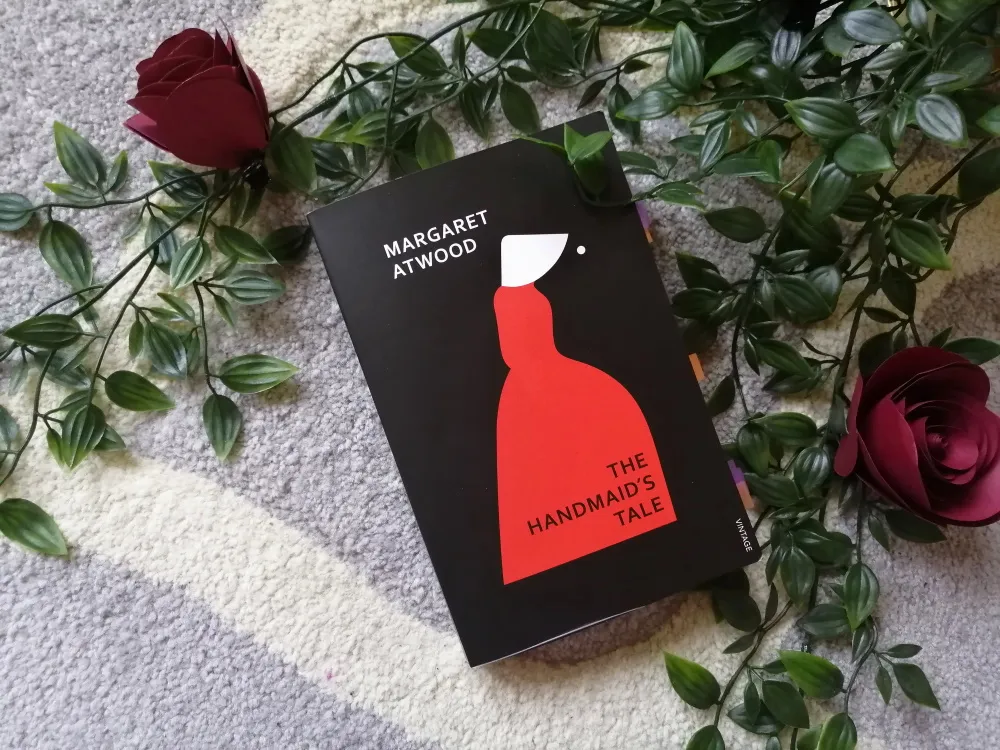By: Sophia Wang
In the realm of dystopian literature, few novels have left as remarkable mark as Margaret Atwood’s The Handmaid’s Tale. First published in 1985, her compelling dive into the terrifying landscape of suppressed freedoms and authoritarian rule continues to resonate with readers, sparking crucial conversations of perilous importance.
The Handmaid’s Tale, set in the gloomy fictional Republic of Gilead, a totalitarian state formed from the ashes of what was once the United States, the novel elaborates on women’s subordination in a society plagued by environmental disasters and falling birth rates. We see this crumbling society through the eyes of Offred, an ironic moniker derived from the possessive ‘Of Fred’, implying that her identity is interwoven with that of her male owner, the Commander. The flourishing misogyny deprives women of their identities, leaving them faceless and brutalized, subject to Gilead’s awful creed.
Atwood’s writing style distinguishes this novel; it is evocative and incisive. She imbues an uncomfortable mood with incredible intensity. Combining exquisite words with sobering observations into human nature. Atwood skillfully depicts Gilead, a dark yet strangely captivating dystopian country that lingers in your imagination long after you’ve finished the novel.
However, the novel is not without defects. Some may find the frequent use of flashbacks perplexing, and the uncertainty of the ending, while deliberate, may leave others dissatisfied. There is a pervasive bleakness that follows you throughout your reading experience, which can seem weighty and sad.
Despite these possible problems, The Handmaid’s Tale is a must-read, largely for its sociopolitical analysis and applicability to modern society. A New York Times reviewer described it as a “poignant reminder that history has a habit of repeating itself,” emphasizing women’s ongoing struggle for agency and freedom.
Recommended? Absolutely. This book is as much a captivating story as it is a chilling cautionary tale—a testament to Atwood’s mastery of dystopia. Do remember, however, that it’s heavy content; not light-hearted fare but a chilling, distorted mirror of the flaws in our society.











